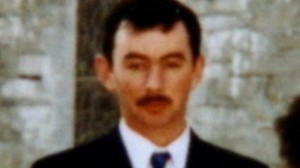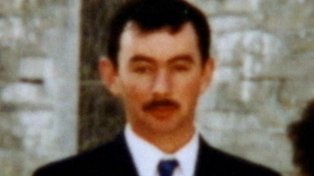 A Letterkenny-based businessman has welcomed a government apology today after a report into the death of his brother and two other soldiers in the Lebanon was released.
A Letterkenny-based businessman has welcomed a government apology today after a report into the death of his brother and two other soldiers in the Lebanon was released.
Enda Henegan said the families felt vindicated.
His brother Corporal Fintan Heneghan, along with Private Mannix Armstrong and Private Thomas Walsh died in the bombing on March 21, 1989. The report found the device should or could have been detected before it detonated.
The Defence Forces and United Nations had failed to carry out adequate threat assessments despite greater risks from radical Islamic groups, an independent review stated, while the troops had not undergone adequate mine sweeping training.
Enda Heneghan’s accused the Irish Army authorities of a cover-up for the last two decades and said the Defence Forces’ treatment of the families had been outrageous.
“After a blanket denial over 22 years, we’re now in a situation that the army authorities in this country have admitted a systems failure, as it is being termed,” he added.
“Today does not represent any thought of victory or celebration because today, as every day for the rest of our lives, there are three graves in the west of Ireland.”
Cpl Heneghan, 28, from Ballinrobe, Co Mayo; father-of-three Pte Walsh, 39, from Tubbercurry, Co Sligo; and Pt Armstrong, 26, whose widow Grainne gave birth to their first child weeks after her husband’s death, were killed while collecting stones during UN duty in Bra’shit, south Lebanon.
For years families and colleagues argued the men died because the dirt track had not been swept for the fatal landmine, believed to have been planted by the militant Hezbollah group targeting the Israeli army.
The army had denied any negligence.
Defence Minister Alan Shatter ordered an independent review in April, by senior counsel Frank Callanan, when evidence came to light during a High Court case brought by Pte Armstrong’s widow, Grainne. The action collapsed and was settled out of court.
The Justice and Defence Minister Alan Shatter has apologised on behalf of the Government to the families of the three men.
They had maintained the road had not been swept for mines before the men were sent out to collect stones.
Mr Shatter said: “I met the families and extended to them, on behalf of the Government, our heartfelt regret for the failure to fully recognise, by early 1989, the implications of the changed circumstances in the Defence Forces mission area in southern Lebanon and for the deaths of their loved ones.
“While we can never be absolutely certain that their loved ones would have been saved if the Defence Forces had adopted a higher risk posture and appropriate protection measures, we must accept that appropriate operational procedures could possibly have avoided this tragedy.”
Mr Shatter said it was clear all the officers and men of the Defence Forces in Lebanon were doing the best they could in a very complex and difficult mission with limited resources.
“Notwithstanding this, the report concludes that there was a systemic failure, not alone by the Defence Forces but by the Unifil mission as a whole, to respond to the increased threat from improvised explosive devices and from the danger of a targeted attack by radical armed Islamic elements,” the minister said.
“Three men have died and three families have been bereaved and devastated by their loss. Our thoughts at this time must be with them.
“Unfortunately we can never undo what happened and what should not have happened.
“As the report shows, the deaths of Cpl Armstrong and Ptes Heneghan and Walsh could and should have been avoided.
“For that, on behalf of the State, I apologise wholeheartedly to their families, their loved ones and their comrades.”
Tags:







